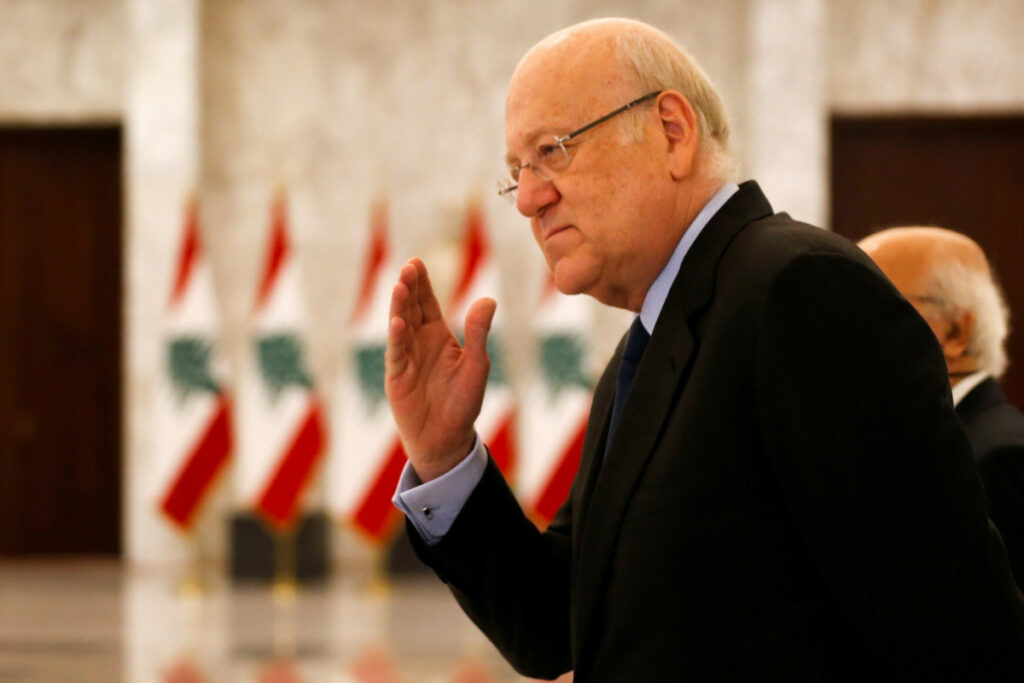BEIRUT, Jan 10 (Reuters) – Lebanese caretaker Prime Minister Najib Mikati will meet Syria’s de facto leader Ahmed al-Sharaa in Damascus on Saturday, two Lebanese sources said, becoming the first head of government to visit Syria’s capital since the fall of Bashar al-Assad.
The visit will also be the first by a Lebanese premier to neighbouring Syria in 15 years.
Lebanon’s new president, Joseph Aoun, said on Thursday there was a historic opportunity for “a serious and equal dialogue” with Syria, which had big sway over its neighbour during much of the Assad family’s five decades in power, maintaining troops there for 29 years until 2005 – a role many Lebanese opposed.
Sharaa, leader of the rebel forces which toppled Assad on Dec. 8, pledged last month – during a meeting in Damascus with influential Lebanese Druze politician Walid Jumblatt – that Syria would not interfere in Lebanon’s affairs.
Mikati last week received a phone invitation from Sharaa to visit Syria. Lebanese Foreign Minister Abdallah Bou Habib, who is expected to accompany Mikati, said during a Dec. 26 call with his Syrian counterpart that Beirut was looking forward to the best neighbourly relations with Syria.
The last Lebanese premier to visit Damascus was Saad al-Hariri, who went there in 2010.
Ties between Damascus and Beirut have often been fraught since they became independent states in the 1940s.
The Iran-backed Lebanese Shi’ite Islamist group Hezbollah played a major part in propping up Assad during Syria’s civil war, fighting the Sunni Islamist insurgents who toppled him.
Prior to this, the Assad-led Syrian state had a big role in Lebanon’s 1975-90 civil war, sending troops into the country in 1976, and dominated Lebanon for 15 years after the conflict ended. Many Lebanese viewed Syria as an occupying power in that period, though some groups supported its role.
The assassination of Lebanese former Prime Minister Rafik al-Hariri in Beirut in 2005 prompted mass protests in Lebanon and Western pressure that forced Syria to withdraw troops.
An initial international probe implicated senior Syrian and Lebanese figures in the killing.
While Syria denied involvement, former Syrian Vice President Abdel-Halim Khaddam said Assad had threatened Hariri months earlier – an accusation that Assad denied.
Fifteen years later, a U.N.-backed court convicted three Hezbollah members in absentia over the assassination. Hezbollah denies any role.

